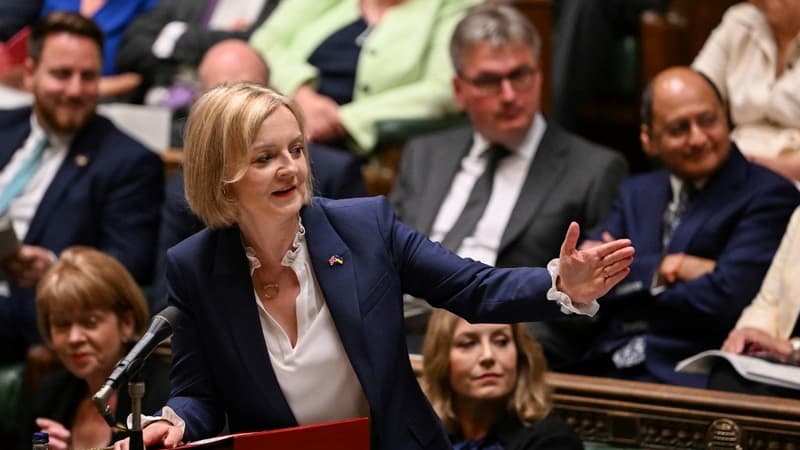Following the freeze on energy bills already promised to households, the British government under new Prime Minister Liz Truss will also pay, at great expense, half of businesses’ energy costs this winter to cushion the price spike. “The Government has set a subsidized wholesale price” for six months, which should represent “less than half of the wholesale prices expected this winter” for companies, NGOs and public establishments affected by the measure, according to a press release from the ministry . on Wednesday Energy and Business.
The support “will be equivalent” to that already announced for individuals -which limits the price of energy for an average household for two years to 2,500 pounds per year, that is, a reduction of about 1,000 pounds- and includes the elimination of certain ecological samples, the Executive specifies. The mechanism could be expanded and made more specific.
Has inflation been reduced to 5%?
Rising energy prices are one of the main factors driving inflation to its highest level in 40 years across the Canal, at 9.9% annually in August.
The business world applauds. “This will allow many businesses that were at risk of closing down, laying off staff or reducing production to get through the winter,” said Shevaun Haviland, chief executive of the British Chambers of Commerce. But some “will still find it difficult to meet their bills” and plan beyond six months, he warns.
Lower taxes to attract investors
Ms. Truss defended her plan for “a strong, growing and dynamic economy” in the United States on Wednesday, where she is attending the UN General Assembly, during a round table with multinational leaders.
An approach indirectly criticized by US President Joe Biden, who said he was “tired of [cette théorie de] the drip economy” (wealth descends to the most modest). “Never worked,” he tweeted.
Facing recession fears, the British government is intent on boosting growth through outright tax cuts, which tend to favor the wealthiest over the poorest, as Ms Truss herself admitted. The newspaper The Times mentions a reduction in the tax on real estate transactions, in addition to those already announced for social security contributions and corporate tax.
A total cost of 100… to 200 billion pounds
The Government will present a “mini-budget” on Friday to detail the financing of these measures, which should exceed 100,000 million pounds, or even 200,000 million according to an estimate by Barclays. This plan must be financed through indebtedness, which raises fears of a gap in public finances. The announced tax cuts will put Britain’s debt “on an unsustainable path”, criticizes the Institute for Fiscal Studies (IFS) think tank in a statement published on Wednesday.
Although public debt fell year-on-year in August, after the peaks reached with aid for the pandemic, it remains very high at 11.8 billion pounds, according to data published this Wednesday. Public debt amounts to 96.6% of GDP.
An “anti-poor” economic policy
The IFS considers it “disappointing” that the government has not requested, during Friday’s tax filing, new official economic projections from the public budget forecasting body OBR.
Even more negative, left-wing economist David Blanchflower, a former member of the Bank of England’s monetary policy committee, in a series of tweets called Liz Truss’s “anti-poor” economic policies a “total disaster”, claiming that the depreciation of the pound is the barometer of this. However, Judge Martin Beck, an economist at EY Item Club, said: “The significant drop in wholesale energy prices in recent times indicates that freezing bills could be less costly than first estimates suggested. ”.
Source: BFM TV


